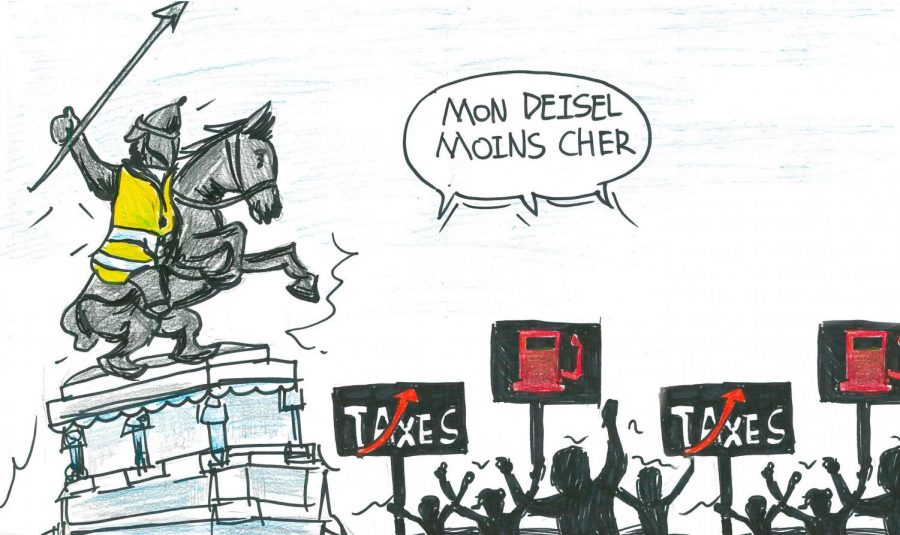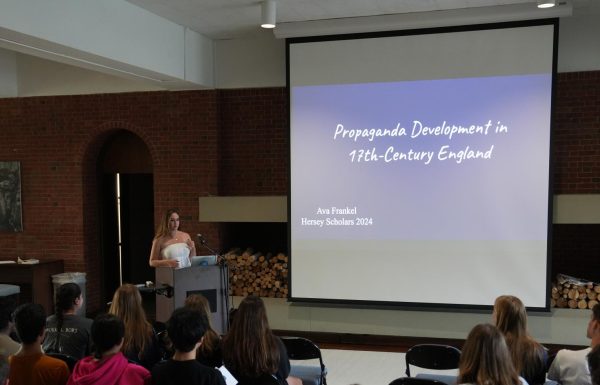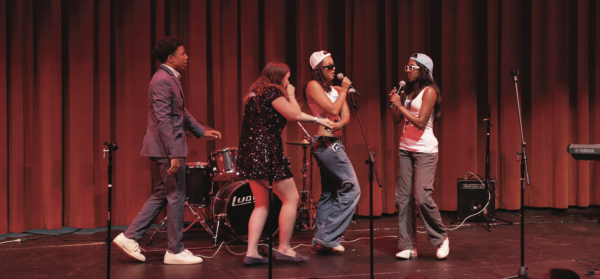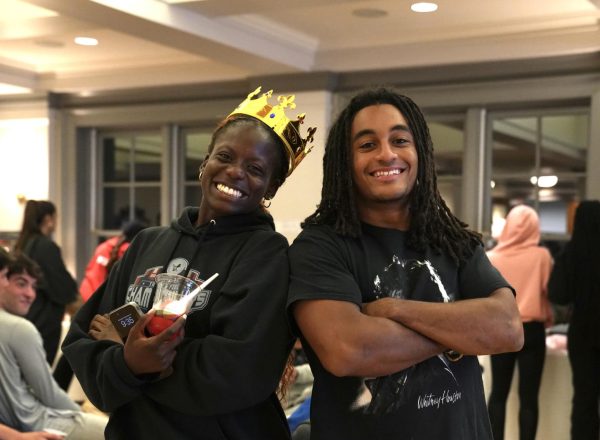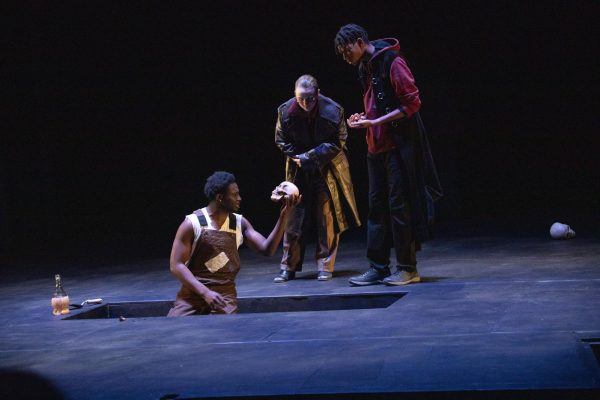Gilets Jaunes Ignite Paris
France, a country with a history of violent protests, is facing its most recent civilian crisis: the Gilet Jaunes movement.
On Sunday, January 5, France began the new year with protests organized by the Gilets Jaunes. The grassroots movement began this fall as a protest against a tax on fuel – hence the adoption of gilets jaunes, the reflective yellow vests every French vehicle owner is legally required to carry in case of an emergency. Since then, the movement has evolved into a broader effort to bring attention to economic inequality between the lower- and middle-classes and the wealthy.
Last May, a petition to decrease gas prices was created on Change.org. Truck driver Eric Drouet saw the petition and created a Facebook page that garnered enormous public support. Today, the petition has over 1.15 million signatures. Public protests began on November 17, 2018, when citizens gathered in Paris to challenge French president Emmanuel Macron’s planned tax on fuel. Since the start of his campaign, President Macron has advocated for the need to improve the planet’s environmental conditions. French government officials have said that by 2040, they intend to end sales of petrol and diesel vehicles. President Macron’s course of action has faced backlash from many French people, angered by what they interpret to be a lack of support for lower economic classes from the President.
Less than a month later, demonstrations became violent, as protestors burned vehicles and fought riot police. The agitators now include many different groups, including the moderates who seek negotiations with the government and radicals who completely reject French leadership. Extremists have defaced monuments such as the Tomb of the Unknown Soldier and the Arc de Triomphe, and plundered shops, vandalizing the city of Paris.
Former French boxing champion Christophe Dettinger punched a policeman after he and his wife were sprayed with tear-gas during the eighth major Gilets Jaunes protest. He received over $100,000 in donations from supporters. Dettinger later said, “I’m demonstrating for all the pensioners, for the future of my children, for single women, for everything we’re fighting for.”
So far, ten people have died as a result of the demonstrations, mostly in traffic accidents related to blockades around France. President Macron was forced to moderate his policies in the face of pressure from the protests. He proceeded to offer a raise in the minimum wage of 100 euros a month beginning in the new year, exempt overtime workers from additional taxes, and cancel a tax on monthly pensions under 2,000 euros. However, he was unwavering in his intention not to revive a tax on the wealthy. As demonstrations continue, the Gilets Jaunes’ goals have matured to now include lower taxes, higher wages, and increased spending power.
Some of the protests have featured participants in face-concealing masks. The French government has recently proposed legislation that would make protestors wearing masks face legal penalties. These laws would follow examples found in many other European countries used to combat the Occupy and Anonymous movements across the world. French Prime Minister Edouard Philippe said, “We have to preserve the freedom to protest in France and punish those who want to violate this right.”
The Gilet Jaunes movement has called upon President Macron to ameliorate their financial situations by bridging the economic gap between the upper and lower classes. Mr. Abdoulaye Fall, instructor in French, said, “The French – by [and] large – believe that Macron – by virtue of the policies that he’s been implementing – is really not there for the poor, that he is only there for the rich people. And I think that until Macron is able to reverse that [impression] and then present himself as someone who cares also for the lower classes, the divide will [continue to] be the source of social issues like this.”
The Gilets Jaunes are in their ninth week of protests, the most recent of which occurred last Saturday in various French cities. This past cycle has been largely peaceful, with the exception of scattered clashes with police resulting in the use of tear gas and water cannons. Going forward, many French citizens hope to express their anger and frustration when voting in the European Parliament election this upcoming May.

